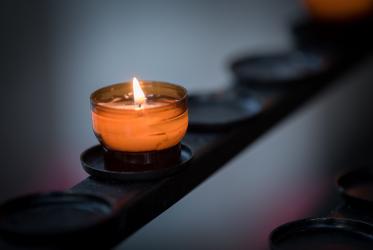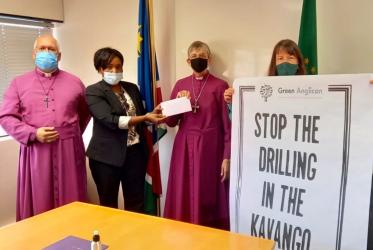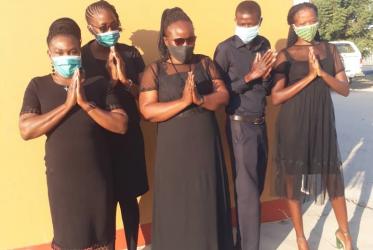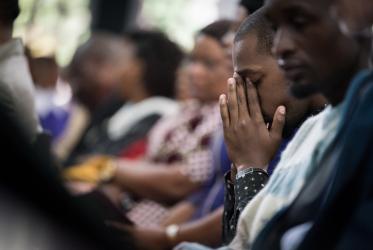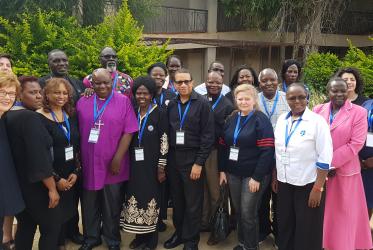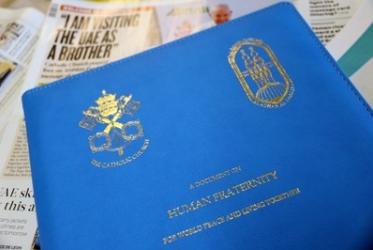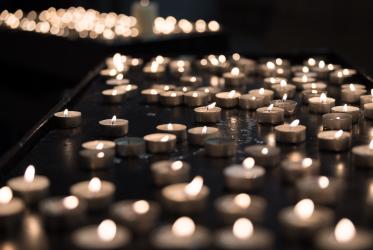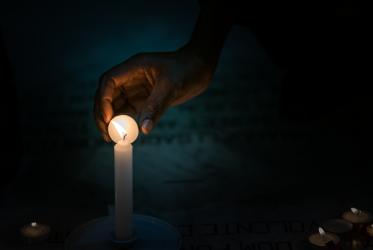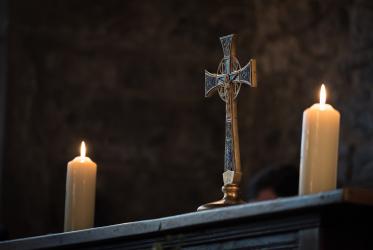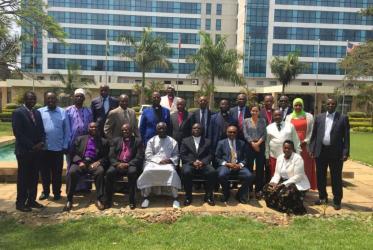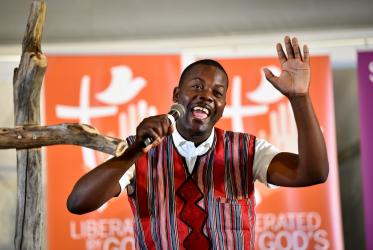Displaying 1 - 20 of 27
Thursdays in Black is growing in Namibia
20 August 2020
Listening together to the pain of violent spaces
28 February 2020
WCC general secretary condemns violence in Burkina Faso, Cameroon
17 February 2020
WCC condemns attack on Christian church in Burkina Faso
30 April 2019
#WCC70: Churches as “freedom agents”
12 February 2018
African women embark on pilgrimage in Burundi
29 November 2017
Religious leaders explore message of peace in Burundi, DRC
23 February 2017
